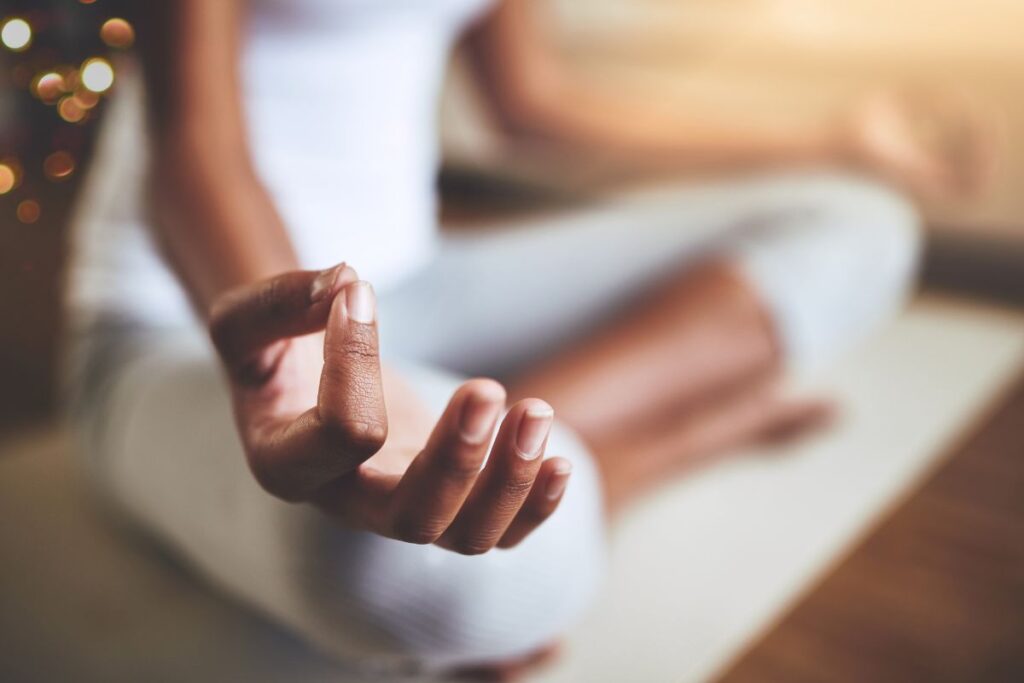Mindfulness and meditation offer a natural and drug-free approach to cultivating inner peace, improve focus, and develop emotional resilience. In today’s fast-paced world, stress and anxiety are pervasive issues affecting people of all ages and backgrounds. These constant mental and emotional strains can take a toll on our physical and mental well-being, impacting everything from our sleep and digestion to our productivity and relationships.
Fortunately, there are powerful tools available to help us manage stress and anxiety effectively.
Understanding Mindfulness and Meditation
-
Mindfulness: Mindfulness is the practice of paying attention to the present moment without judgment. It involves bringing your awareness to your thoughts, feelings, and bodily sensations in a non-reactive way. By observing your inner experience without getting caught up in it, you can gain a sense of perspective and detachment from negative emotions.
-
Meditation: Meditation is a formal practice that cultivates mindfulness. There are many different meditation techniques, but they all share the common goal of training your attention to focus on a specific object, such as your breath, a mantra (a repeated word or phrase), or a physical sensation. By regularly practicing meditation, you can strengthen your ability to focus and become more aware of your thoughts and emotions.
How Mindfulness and Meditation Can Help Manage Stress and Anxiety
Mindfulness and meditation offer a range of benefits that can significantly reduce stress and anxiety. Here’s how:
-
Reduces Activity in the Stress Response System: When we experience stress, our body releases hormones like cortisol, which prepare us for fight-or-flight situations. Mindfulness and meditation practices activate the parasympathetic nervous system, the body’s relaxation response, counteracting the effects of stress hormones and promoting a sense of calm.
-
Increases Self-Awareness: Mindfulness helps you become more aware of your thoughts and feelings as they arise. This allows you to identify negative thought patterns and emotional triggers before they escalate into anxiety.
-
Develops Emotional Regulation Skills: Through meditation, you learn to observe your emotions without judgment and allow them to pass. This allows you to build emotional resilience and respond to stressful situations in a more controlled and mindful way.
-
Improves Focus and Concentration: Modern life is filled with distractions. Mindfulness practices help you train your attention to stay focused on the present moment, reducing mental clutter and anxiety caused by ruminating thoughts and worries about the future.
-
Promotes Relaxation and Better Sleep: Stress and anxiety can disrupt sleep patterns. Mindfulness and meditation can help you quiet your mind, ease physical tension, and prepare your body for restful sleep.
Getting Started with Mindfulness and Meditation
The good news is that anyone can benefit from mindfulness and meditation. Here are some tips to get you started:
-
Start Small: Aim for just a few minutes of practice per day. Even 5 minutes of mindful breathing can make a difference.
-
Find a Quiet Place: Choose a comfortable and quiet space where you won’t be interrupted.
-
Focus on Your Breath: A simple and effective meditation technique is to focus on your breath. Observe the sensation of your breath entering and leaving your nostrils. If your mind wanders, gently bring your attention back to your breath.
-
Guided Meditations: Many guided meditations are available online and through apps like Headspace [Headspace meditation app] or Calm. These can be helpful for beginners who need some structure and direction.
-
Be Patient and Consistent: Like any skill, mindfulness and meditation take practice. Don’t get discouraged if your mind wanders during meditation. Simply acknowledge the distraction and gently bring your attention back to your focus.
Integrating Mindfulness and Meditation into Your Daily Life
Beyond formal meditation practice, you can integrate mindfulness into your daily activities to cultivate a more present and peaceful state of mind. Here are some tips:
-
Mindful Eating: Pay attention to the taste, texture, and aroma of your food as you eat. Chew slowly and savor each bite.
-
Mindful Movement: Be present during physical activities like walking, running, or yoga. Notice the sensations in your body as you move.
-
Mindful Communication: Listen attentively to others during conversations. Focus on understanding their perspective rather than formulating your response.
-
Mindful Pauses: Take short mindful pauses throughout your day. Close your eyes, take a few deep breaths, and observe your thoughts and feelings without judgment.
-
Mindfulness in Nature: Spend time in nature and connect with your surroundings. Notice the sights, sounds, and smells around you.

